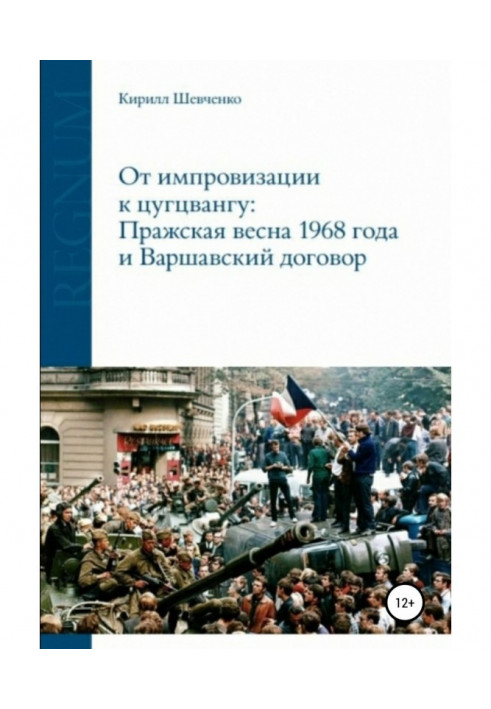Book From Improvisation to Zugzwang: The Prague Spring of 1968 and the Warsaw Pact
The Prague Spring of 1968 completes the long string of "fatal eights" of Czech history today, continuing to arouse keen interest fifty years later. Like other events in Czech history that took place in the year ending with the number "8", the Prague Spring was a derivative of the dramatic events that preceded it in the history of Czechoslovakia and Europe. The unique appearance of the Prague Spring was given by the experience of Czechoslovakia being in the socialist camp led by the USSR. Like other "magic eights" of Czech history, the Prague Spring and its results were to a certain extent a programmed phenomenon. The Prague Spring phenomenon and its outcome were a logical consequence of the specifics of the historical development of the parties involved, their different historical and social experiences, a significant difference in the mentality of the elites, as well as the specific domestic and foreign political conditions prevailing at that time.
The book’s text has been translated from the original language using an artificial intelligence system. In most cases, the translation is accurate and clear, but occasionally there may be incorrect phrasing or individual words left untranslated.
- Name of the Author
- Шевченко Кирилл Алексеевич
- Language
- Ukrainian
- Age
- 12
- Release date
- 2019
Reviews
More books on this topic
Book Invisible force
122 UAH
110 UAH
Book Especially confidence....
116 UAH
105 UAH
Book Diplomacy
119 UAH
108 UAH
Book About China
123 UAH
111 UAH
Book As I was at war with Russia
171 UAH
154 UAH
Book Belarus is in the geopolitical...
183 UAH
165 UAH
Book International organizations and...
122 UAH
110 UAH
Book CIA against KGB. Art of espionage
108 UAH
98 UAH
Book Linguistics of...
122 UAH
110 UAH
Book Linguistics of...
122 UAH
110 UAH














05/18/2022
Глибоке занурення в історію та політику
Книга "Від імпровізації до цугцвангу" є справжнім відкриттям для тих, хто цікавиться історією Чехословаччини та подіями Празької весни 1968 року. Автор майстерно аналізує не лише самі події, але й їх передумови, що дозволяє читачеві зрозуміти складність ситуації, в якій опинилася країна. Вражає, як детально описані соціальні, політичні та культурні аспекти того часу, що робить текст живим і актуальним навіть через півстоліття. Хоча переклад тексту з використанням штучного інтелекту в деяких місцях може бути не зовсім точним, це не заважає загальному сприйняттю книги. Рекомендую цю працю всім, хто хоче глибше зрозуміти історичні процеси та їх вплив на сучасність, адже Празька весна стала важливим етапом у розвитку не лише Чехословаччини, а й усієї Європи.